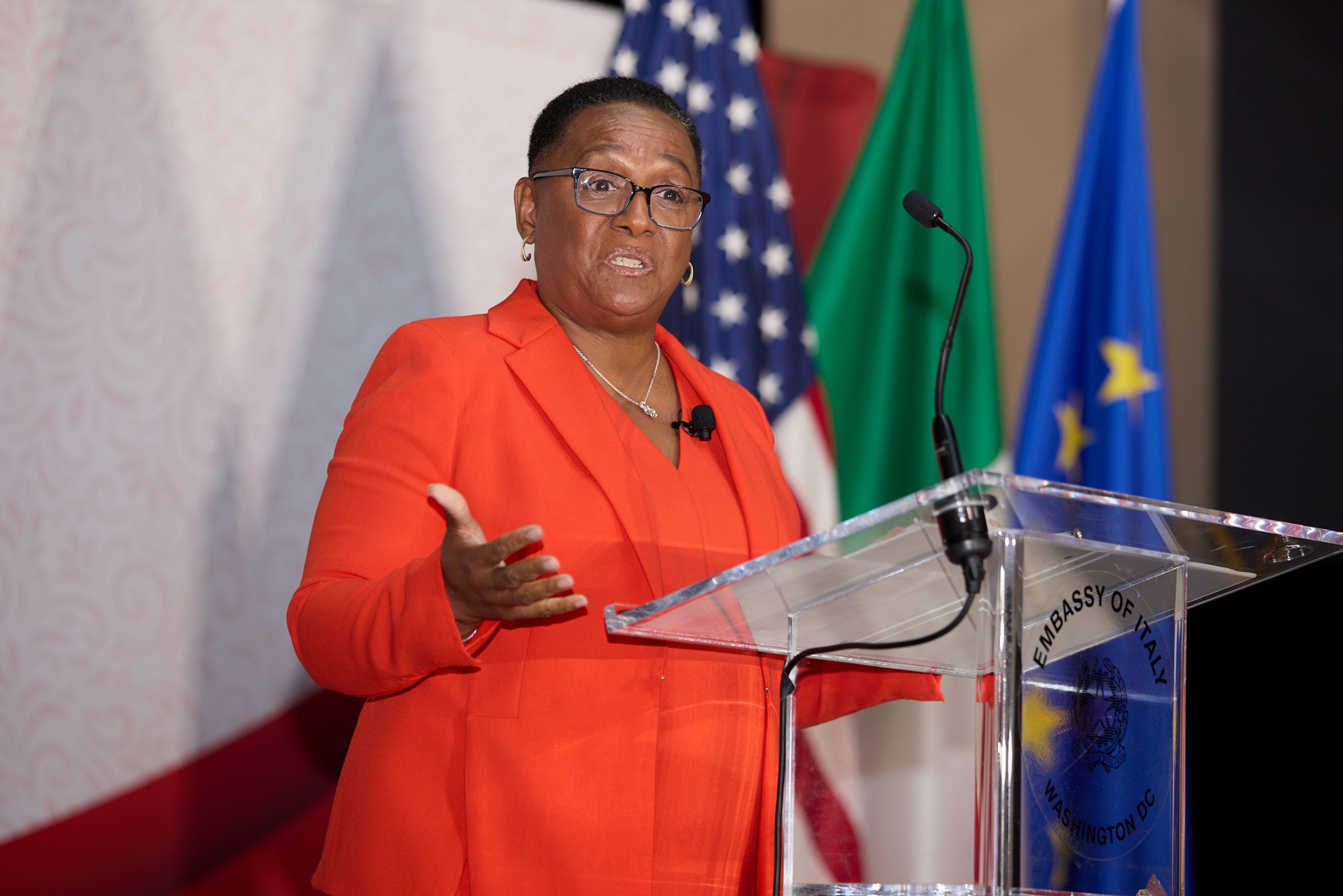The LCWINS Tracker
Assessing Women's Participation in Senior National Security Decision-Making
Overview
The LCWINS Tracker is an analytical tool that tracks the composition of select senior national security and foreign policy positions in the federal government.
This tool enables annual analysis of the composition of senior leadership teams in roles that are institutionally positioned to participate in national security and foreign policy decision-making across the executive branch.
This resource examines the composition of senior leadership teams in defense, diplomacy, intelligence, international finance, technology, and other national security–relevant roles across the executive branch.
People in these roles regularly participate in high-level policy deliberations and operational decision-making that directly affect U.S. national security. This Tracker focuses on these positions because of their institutional influence and policy impact.
This Tracker is descriptive in nature and does not assess the qualifications, performance, or selection decisions associated with any individual nomination or appointment. All individuals serving in these roles are presumed to meet the applicable statutory and institutional requirements of their positions.

Methodology
The LCWINS Tracker is built upon a list of senior leadership positions across the federal executive branch. We define “senior leadership” as positions with a hierarchical rank of Deputy Assistant Secretary and above, as well as equivalent roles with comparable levels of authority and responsibility. Although U.S. ambassadorships are essential to the execution of American foreign policy, they are not included in this analysis. The Tracker focuses instead on roles that are more consistently engaged in policy formulation, interagency coordination, and internal decision-making processes within the executive branch.
The specific positions included meet that rank and have titles that fall within nine hierarchical groups:
- Secretary, Agency Head
- Deputy Secretary
- Under Secretary
- Assistant Secretary
- Deputy Assistant Secretary, Principal Deputy Assistant Secretary, Deputy Under Secretary
- Chief of Staff
- Envoy, Representative, Coordinator
- Director, Senior Director
- Other (e.g., Deputy Inspector General, Chief Operating Officer, etc.)
We define the broad areas of national security responsibility:
- Defense & Security – Military department leadership, the Office of the Chairman of the Joint Chiefs of Staff and the Joint Staff, and the Office of the Secretary of Defense.
- Diplomacy – The Department of State, the U.S. Mission to the United Nations, the U.S. Agency for International Development (USAID), the U.S. Institute of Peace (USIP), and Peace Corps.
- The Intelligence Community – The Office of the Director of National Intelligence (ODNI), the Central Intelligence Agency (CIA), National Security Agency (NSA), National Reconnaissance Office (NRO), the National Geospatial-Intelligence Agency (NGA), and the Defense Intelligence Agency (DIA).
- The National Security Council – The National Security Council (NSC) Staff at the White House.
- Finance & Banking – The Departments of Commerce and Treasury, Office of the U.S. Trade Representative, U.S. Export-Import Bank, U.S. International Development Finance Corporation (DFC), and U.S. representatives to international development banks.
- Other – Positions with national security impact at international development banks; the Departments of Commerce, Energy, Homeland Security, Justice, and Treasury; and the Offices of the National Cyber Director, Management and Budget, Science and Technology Policy, and the U.S. Trade Representative.
